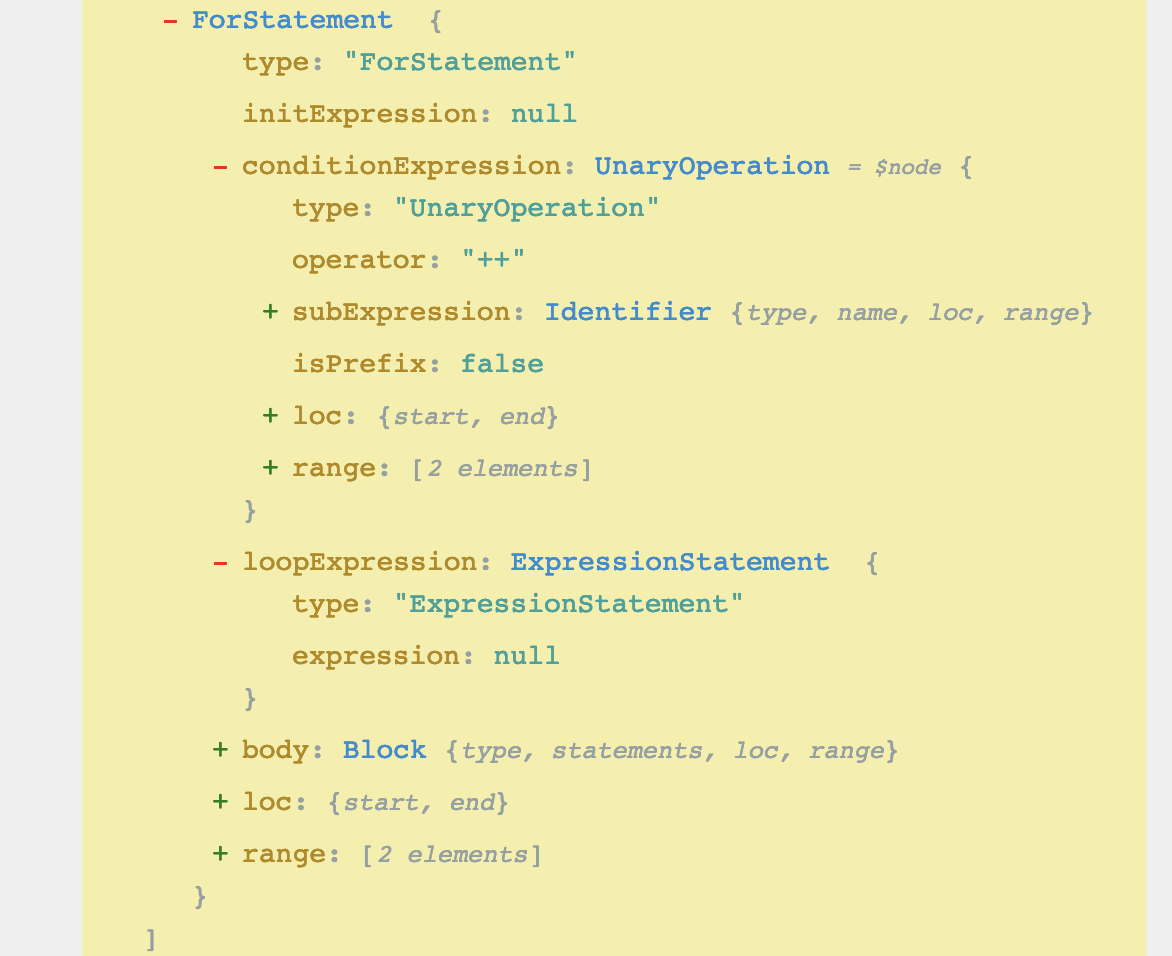A Solidity parser built on top of a robust ANTLR4 grammar.
import parser from 'solidity-parser-antlr';
var input = `
contract test {
uint256 a;
function f() {}
}
`
try {
parser.parse(input)
} catch (e) {
if (e instanceof parser.ParserError) {
console.log(e.errors)
}
}The parse method also accepts a second argument which lets you specify the
following options, in a style similar to the esprima API:
| Key | Type | Default | Description |
|---|---|---|---|
| tolerant | Boolean | false | When set to true it will collect syntax errors and place them in a list under the key errors inside the root node of the returned AST. Otherwise, it will raise a parser.ParserError. |
| loc | Boolean | false | When set to true, it will add location information to each node, with start and stop keys that contain the corresponding line and column numbers. Column numbers start from 0, lines start from 1. |
| range | Boolean | false | When set to true, it will add range information to each node, which consists of a two-element array with start and stop character indexes in the input. |
parser.parse('contract test { uint a; }', { loc: true })
// { type: 'SourceUnit',
// children:
// [ { type: 'ContractDefinition',
// name: 'test',
// baseContracts: [],
// subNodes: [Array],
// kind: 'contract',
// loc: [Object] } ],
// loc: { start: { line: 1, column: 0 }, end: { line: 1, column: 24 } } }var ast = parser.parse('contract test { uint a; }')
// output the path of each import found
parser.visit(ast, {
ImportDirective: function(node) {
console.log(node.path)
}
})Federico Bond (@federicobond)
MIT



